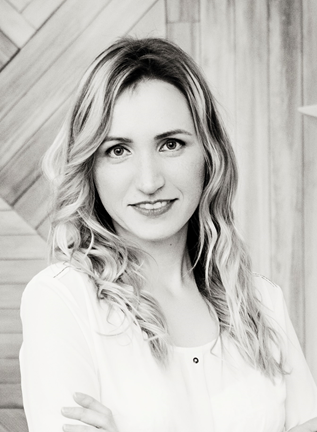Madli Vain appreciates the academic freedom at Tallinn University

This is an interview of a Lecturer of European studies and International Relations in Tallinn University Madli Vain, who became a Tallinn University lecturer quite recently. In this interview we will look at her experiences in Tallinn University. What led her to become a lecturer in Tallinn University in the first place? What are her academic interests and get to know her better in general?

- Could you please tell something about yourself, maybe something that you would want other people or students to know about you. Maybe your background or where you´re from.
MV: “Although I’ve always been interested in the world around us, my interest in politics developed during my final year of high school. Before that I was convinced that I will be heading towards a career in law. Even when I was preparing the papers for university admission, I couldn’t decide whether to study law or politics. So, in that sense, my final decision was really a result of a deep interest to understand how the state functions. It doesn’t mean that my interest in law has gone away. On the contrary, it has even intensified.”
- You´re a Lecturer of European studies and International Relations. Why does this subject matter specifically interest you? Is there something else that you are interested in or have studied?
MV: “Since I remember, I have always been interested in gaining the understanding about the world around us. But my interest in international relations developed during my teenage years when I spent two summers abroad amongst young people all over the world from different countries and cultures. This was probably the time that developed my interest in international relations specifically and made me decide to study IR instead of law. But I’m still interested in law.”
- What do you believe is the most important thing about your field of work? Specifically, as being a lecturer of European studies and International Relations.
MV: “I think that the interest to understand why things happen the way they do, is of utmost importance- why states and actors act the way they do, what is the role of the international structure in shaping actors’ preferences and so on. You must be curious about world affairs, different actors’ preferences and levels that shape the international system. Of course, also the interest to share your knowledge with others could become handy?”
- Why is it important to study what you´re teaching? Or why it would be good for students in Tallinn University to consider taking your courses. How could the courses be useful for them?
MV: “During my courses I aim to enrich students with tools to analyse the world around us. I consider lecturing about the specific topic only one part of my job. I, as a lecturer, consider it of utmost importance to prepare students for the job market by developing their skills in analysing world affairs with the help of academic tools and to advance their skills in being able to express their knowledge both verbally and in written form. In this field, I consider the ability and courage to debate and negotiate equally important to the capability to write.”
- What do you believe is your biggest academic accomplishment? Or maybe something that you´re the proudest of?
MV: “It is hard to say as I’ve been a full-time lecturer for three months. Ask me again in few years?”
- Why Tallinn University? Is there a specific reason why you work in Tallinn University? Or maybe something that you admire about Tallinn University?
MV: “I appreciate the academic freedom at Tallinn University. Although there are certain and universal rules, norms and criteria that all the academics must follow and meet, I consider Tallinn University an institution which next to all the rules, norms and criteria leaves enough space for academics to develop into their own direction.”
- What is your opinion of Tallinn University?
MV: “Again, it is hard to say as I’ve been lecturing here only for three months. I really appreciate the academic freedom they enable.”
- Is there something else you would want to tell people that would be reading the Tallinn University blog?
MV: "Keep your mind open to change all the time. Welcome it. Court it. It is only by examining and re-examining your opinions and ideas that you can progress."- Dale Carnegie
“And if you progress, the world can progress.”